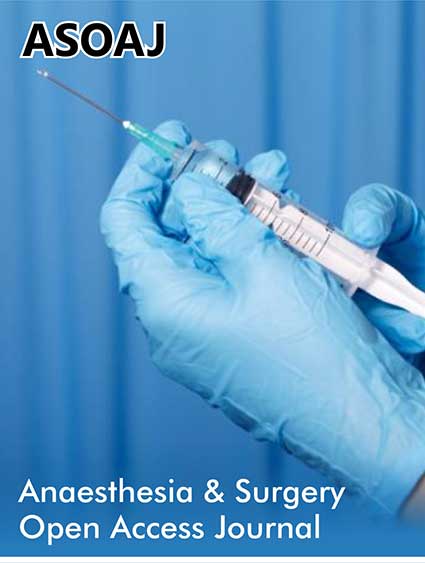 Research Article
Research Article
Exposure to Covid-19: Assessing the Knowledge, Attitudes, and Practices of Anaesthetists in the Prevention of COVID-19 Spread in Ghana-A Multicenter Cross-Sectional Survey
Sylvanus Kampo1*, Thomas Winsum Anabah2, Alexis DB Buunaaim3, Eugene Dogkotenge Kuugbee4, Jacob Mbuer Wumbei5, James Mwinsagra6, Shiraj Mohammed7 and Thomas Bavo Azongo8
1Department of Anaesthesia and Critical Care, School of Medicine, University of Health and Allied Sciences, Ghana
2Anaesthesia Unit, Habana Medical Service, Ghana
3Department of Surgery, School of Medicine and Health Sciences, University for Development Studies, Ghana
4Department of Clinical Microbiology, School of Medicine and Health Science, University for Development Studies, Ghana
5Department of Anaesthesia, Greater Accra Regional Hospital, Ghana
6Department of Anaesthesia, Komfo Anokye Teaching Hospital, Ghana
7Department of Anaesthesia, Tamale Teaching Hospital, Ghana
8Department of Public Health, School of Allied Health Sciences, University for Development Studies, Ghana
Sylvanus Kampo, Department of Anaesthesia and Critical Care, School of Medicine, University of Health and Allied Sciences, Ghana.
Received Date: August 17, 2020; Published Date: September 25, 2020
Abstract
The number of health workers infected with COVID-19 is increasing exponentially. Recent reports indicate that about 787 frontline health workers died of COVID-19 in the United States of America. In Ghana, not less than 779 health workers especially doctors, certified registered Anaesthetists and nurses have been infected with COVID-19, with nine death. Aerosol and fomite transmission of SARS-CoV-2 to individuals is plausible. Anaesthesia professionals who are in close contact as they help patients breathe through airway equipment are at maximum risk of exposure to COVID-19. This study aimed to assess the knowledge, attitudes, and practices of Anaesthetists towards the prevention of the spread of the COVID-19 infection. Certified Registered Anaesthetists were required to complete a self-administered structured questionnaire. A total of 356 respondents were recruited in this study. The data showed that 73.3 % of the respondents recruited for this study were males and 26.7 % of them were females. The mean age of the respondents was 37.1 ± 5.3 years old. We realized that 4.8% of them always had access to appropriate personal protective equipment, whereas 95.2 % of them had no access during work. The data also showed that 34.0 % of them always had access to a face mask and hand sanitizers, while 66.0 % of them had no access to a face mask and hand sanitizers during work. There is, the need for regular inservice training of Certified Registered Anaesthetists and other health workers on the right attitude and practices to prevent the spread of the virus among health workers. Policymakers should ensure the regular supply of basic PPE at the various hospitals.
Keywords: Anaesthetists; Knowledge; Attitudes; Practices; Prevention; SARS-CoV-2 infection; Healthcare providers
Abbreviations: SARS-CoV-2 - Severe acute respiratory syndrome coronavirus 2; COVID-19 -Coronavirus disease 2019; CRA - Certified Registered Anaesthetists; PAPR - powered air-purifying respirators; PPE - Personal Protective Equipment; CDC - Centre for Disease Control
-
Sylvanus Kampo. Exposure to Covid-19: Assessing the Knowledge, Attitudes, and Practices of Anaesthetists in the Prevention of COVID-19 Spread in Ghana-A Multicenter Cross-Sectional Survey. Anaest & Sur Open Access J. 2(2): 2020. ASOAJ. MS.ID.000533.
-

This work is licensed under a Creative Commons Attribution-NonCommercial 4.0 International License.






